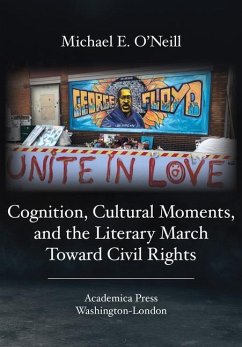In this visionary book, Michael O'Neill contends that literary fiction may enable individuals to transcend tribe-centered biases by fostering empathetic understanding. Drawing from a wealth of neuroscience research, it investigates how relatable and emotionally resonant characters can encourage readers to identify with others whose lives are markedly different from their own. O'Neill explores the psychology behind group formation and the associated problem of racial bias and then offers a theoretical explanation for the existence of a cognitively uncanny concept-the psychological discomfort that occurs when expectations of another's behavior fail to match what is actually observed and how literature enables readers to bridge this cognitive gulf. O'Neill examines three culturally significant novels that condemned racism and scrutinizes their historical impact. Uncle Tom's Cabin helped in the quest to abolish slavery by arguing for whites to embrace blacks as equals both in terms of their claims to civil rights and as human beings standing before God. Native Son's helped end the pernicious "separate but equal" doctrine of segregation in the U.S. Supreme Court's momentous decision in Brown v. Board of Education. Finally, To Kill A Mockingbird's influence on the modern civil rights movement powerfully boosted the pursuit of legal equality for African Americans.
Hinweis: Dieser Artikel kann nur an eine deutsche Lieferadresse ausgeliefert werden.
Hinweis: Dieser Artikel kann nur an eine deutsche Lieferadresse ausgeliefert werden.








